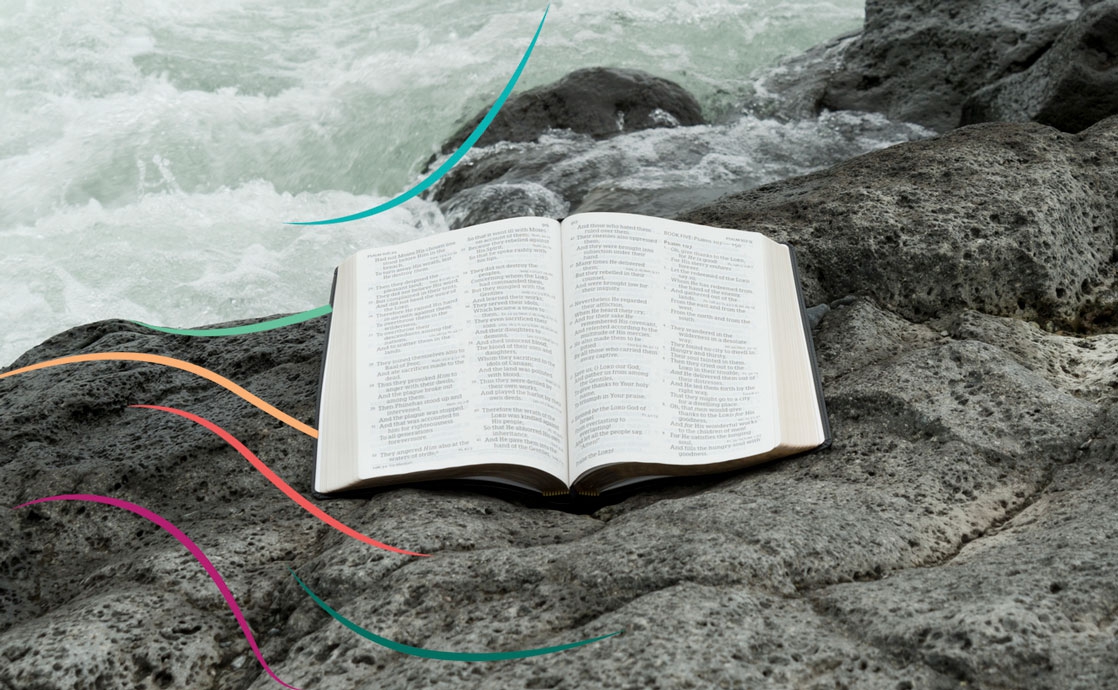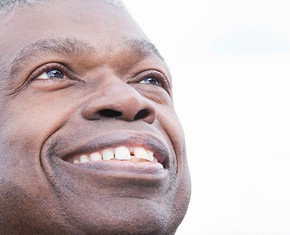The views expressed in our content reflect individual perspectives and do not represent the authoritative views of the Baha'i Faith.
In the Bible, Psalms is the most-read book, the one most quoted by Jesus, and the one universally acknowledged as uplifting and hopeful for the future regardless of how dire the present seems.
Why? In the book of Psalms lamentations of distress are followed by expressions of faith in God, weaving two disparate emotions into a tapestry of aspiration and inspiration. Almost all readers can empathize with the depths of human despair, hope, and poignancy the psalms express.
However, Psalm 45, attributed to David, does not follow the usual pattern.
Psalm 45 has been an enigma for thousands of years, because it apparently presents a prophetic look at Baha’u’llah and his wife, Asiyih Khanum, who were not known until nineteen centuries later.
The 45th psalm gives details from a time incredibly distant, stretching our understanding of the nature of time. Divine time, the psalm tells us, combines past, present, and future:
My heart is stirred by a noble theme
as I recite my verses for the king;
my tongue is the pen of a skillful writer.
You are the most excellent of men
and your lips have been anointed with grace,
since God has blessed you forever.
Gird your sword on your side, you mighty one;
clothe yourself with splendor and majesty.
In your majesty ride forth victoriously
in the cause of truth, humility and justice;
let your right hand achieve awesome deeds.
Let your sharp arrows pierce the hearts of the king’s enemies;
let the nations fall beneath your feet.
Your throne, O God, will last for ever and ever;
a scepter of justice will be the scepter of your kingdom.
You love righteousness and hate wickedness;
therefore God, your God, has set you above your companions
by anointing you with the oil of joy.
All your robes are fragrant with myrrh and aloes and cassia;
from palaces adorned with ivory
the music of the strings makes you glad.
Daughters of kings are among your honored women;
at your right hand is the royal bride in gold of Ophir. – Psalm 45:1‒8 (emphasis added)
These verses were given for the king—but who was this king?
The symbolic words and phrases of the psalm lead us to Mirza Ḥusayn-Ali, later known by the title Baha’u’llah, born into a high level of Persian nobility. His father, Mirza Abbas Buzurg, was a vizier in the court of the Persian shah, and his son Baha’u’llah could have received a similar appointment. Instead, he declined court service and devoted the early years of his adulthood to caring for the poor and those in trouble, which made him “the most excellent of men.”
His lips “anointed with grace” describes the condition of a messenger from God who brings a divine revelation. The sword described in the psalm symbolizes his tongue and pen, which were not silenced during his forty years of exile and imprisonment. The core words for the spiritual teachings of Baha’u’llah’s revelation certainly include truth, humility, and justice. The “sharp arrows” of his teachings pierced the hearts of his multitude of followers. As for letting “the nations fall,” Baha’u’llah sent letters to the national and ecclesiastical rulers of his day and warned several of them about the demise of their kingdoms unless they brought peace and prosperity to their peoples.
In line with this approach to Psalm 45, the throne references the everlasting station of the king, Baha’u’llah, whose revelation would “last for ever and ever.” His garments had the scent of the wealth into which he had been born as well as symbolically of the revelation that he would deliver. The scepter of justice captures what is perhaps the major moral teaching of Baha’u’llah, from his book The Hidden Words:
The best beloved of all things in My sight is Justice; turn not away therefrom if thou desirest Me, and neglect it not that I may confide in thee. By its aid thou shalt see with thine own eyes and not through the eyes of others, and shalt know of thine own knowledge and not the knowledge of thy neighbour. Ponder this in thy heart how it behoveth thee to be. Verily justice is My gift to thee and the sign of My loving kindness. Set it then before thine eyes.
Psalm 45, written for the king, is really a Biblical prophecy that heralds the coming of Baha’u’llah, who wrote to the world’s reigning rulers in The Most Holy Book:
Ye are but vassals, O kings of the earth! He Who is the King of Kings hath appeared, arrayed in His most wondrous glory, and is summoning you unto Himself, the Help in Peril, the Self-Subsisting. Take heed lest pride deter you from recognizing the Source of Revelation, lest the things of this world shut you out as by a veil from Him Who is the Creator of heaven. Arise, and serve Him Who is the Desire of all nations, Who hath created you through a word from Him, and ordained you to be, for all time, the emblems of His sovereignty.
















Comments
Sign in or create an account
Continue with Googleor